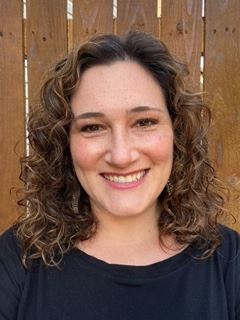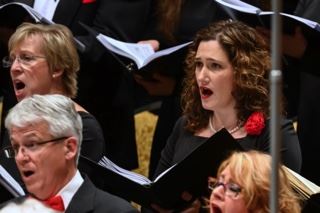 School name: University of Oklahoma
School name: University of Oklahoma
Type of school: 4-year flagship state school; R-1 classification
School locale (including state and country): Oklahoma, U.S.
How many years have you taught psychology? 13 years as a professor, 4 more as a graduate student.
Classes you teach: introductory psychology, occasionally lifespan growth and development. I will be teaching a graduate course on psychology teaching for the first time next spring and I can’t wait!
Specialization (if applicable): technically my Ph.D. is in social psychology, but my job description is master teacher and program coordinator for introductory psychology. I’ve never actually taught a social psychology class!
 Average class size: 450-500
Average class size: 450-500
What’s the best advice about teaching you’ve ever received? My major professor in graduate school, Dr. Nicole Judice-Campbell, used to tell me, “I’m no different than you are; I’m just a few more years down this path.” She is still the best teacher I know, and I used to think that I’d never be able to be anything like her. Her advice gave me the space to just grow into my own teaching skills and understand that teaching is a journey rather than a destination. For a perfectionist like me, it is so important to receive the message that we are all still learning!
What book or article has shaped your work as a psychology teacher? Doug Bernstein’s article “Bye Bye Intro: A Proposal for Transforming Introductory Psychology” (2017) really impacted me. I’m cheating a little bit because I saw him give the talk at NITOP so it was really a double-hit sort of thing. But his idea that we need to teach in a way that is impactful to society rather than catering to potential majors (who are unlikely to remember the content anyway) made a lot of sense to me. I created several new assignments based on his ideas in the semester following his NITOP talk, including one where students create an infographic debunking one of psychology’s greatest myths. When I decide what course content to include in class now, I think about whether it will broadly impact the students’ lives rather than whether a psych major would need it for a later class.
Briefly tell us about your favorite lecture topic or course to teach. I have a lot of students, so I use a small army of undergraduate teaching assistants to help me run the course (usually 10 or so per class). They are enrolled in an upper-division Instructor’s Aide course, and although it’s not a traditional “class” that I get credit for teaching, it has become one of my favorite parts of my job. I get to know the TAs well, and I spend a fair amount of time mentoring them on psychology-related and life-related things. It also keeps me at least somewhat knowledgeable about the lives of 18- to 20-year-olds, and I use them to bounce off ideas and get suggestions on all sorts of things. Some move on and I never hear from them again, but many others end up returning as TAs for multiple semesters or becoming research assistants. One long-time TA will be joining me as a graduate student this coming fall!
Briefly describe a favorite assignment or in-class activity. I give three different surveys throughout the semester to get a sense of how the class is feeling. The last survey includes an open-ended question about the performance of their undergraduate teaching assistants, and I go through and share the best ones with the TAs themselves. They love hearing that they’ve made a difference in their students’ lives, and I love getting to show them how important they really are. Everyone is so supportive of each other, and it’s just such a great, positive way to end the semester.
What teaching and learning techniques work best for you? I use a lot of repeated testing and elaboration during my classes. Since they are so large, I rely on student response systems to help keep the class engaged and get a sense of how well they are understanding the content. Every few minutes, they will get some sort of question – it might be matching, true/false, multiple choice – but it will be practice from the content we’ve been learning. They can consult their notes and talk to friends, but they typically won’t find an easy answer in their book because I like using application-based questions that make them think. The TAs and I all walk around during the questions, listening to the conversations and discussing where we can. Once the answers have been submitted, I like to dig deeper and ask students to share how they knew which answer was correct, how they could change the question to make one of the other answer choices correct, and so on. I’m trying to train their cognitive flexibility while strengthening recall and boosting class interaction at the same time.
What’s your workspace like? Very neat and tidy. I’ve been 100% digital in my work since about 2015, so I don’t have papers or journals lying around. Everything lives in the cloud, which is helpful since I move between my campus office and home office a lot. I like to think that my office is friendly and welcoming to students; I have a lot of family pictures, owl décor (my favorite!) and modular furniture that can be moved around to accommodate different groups.
Three words that best describe your teaching style. Energetic, authentic, application-based.
What is your teaching philosophy in 8 words or fewer? Communicate excitement and connect psychology to everyday life.
What about teaching do you find most enjoyable? Mentorship. I value the relationships I’ve built with students because we both contribute to each other’s knowledge about the world. I pride myself on being approachable, so it is important to me that students feel comfortable seeking out my advice or perspective on whatever challenges they’re facing.
 What is something your students would be surprised to learn about you? I am very involved in singing (I started college as a music major). I sing with a group called Canterbury Voices, which is an auditioned group that performs major concerts several times throughout the year. I have gotten to be a part of many unique experiences as a member of this group, including singing in the Titanic musical with Lyric Theater in Oklahoma City and performing several times with the Oklahoma City Philharmonic. We will be singing onstage with Andrea Bocelli in his “Believe” tour when it comes to Oklahoma City in two weeks!
What is something your students would be surprised to learn about you? I am very involved in singing (I started college as a music major). I sing with a group called Canterbury Voices, which is an auditioned group that performs major concerts several times throughout the year. I have gotten to be a part of many unique experiences as a member of this group, including singing in the Titanic musical with Lyric Theater in Oklahoma City and performing several times with the Oklahoma City Philharmonic. We will be singing onstage with Andrea Bocelli in his “Believe” tour when it comes to Oklahoma City in two weeks!
What are you currently reading for pleasure? Ok, I can’t believe that I’m admitting this, but I absolutely love vampire romance novels. I’ve read the entire Anita Blake series, the Black Dagger Brotherhood, and several others. They probably appeal to my just-world beliefs because they are predictable and the good characters always win, but honestly they’re just fun.
What tech tool could you not live without? Top Hat, 100%. I’ve been using their student response system since 2016, but I’ve also added a custom textbook, exams, and several other assignments to their platform. At this point, I’d say 75% of my class is run out of Top Hat (with the other 25% in Canvas).
Has your teaching changed because of the Covid19 pandemic? If so, how? (positive and/or negative changes). Because of the size of my classes, I was online for an entire year during the worst of the pandemic. When I returned to the classroom this last school year, I kept in-person attendance completely optional and reworked my participation assignments to be completed in person or online. I also kept the online exams that I had implemented during the Covid year, since they worked really well. My class is now optimized for in-person learning but is adaptable to moving completely online for any student(s) who require it. I’m glad I’m able to provide this level of flexibility at the individual student level, and I know I’ll be well prepared if we are ever forced to pivot online again in the future.
PSYCHSESSIONS CONNECTION: Listen to Garth and Jenel talk about her introductory psychology courses!
